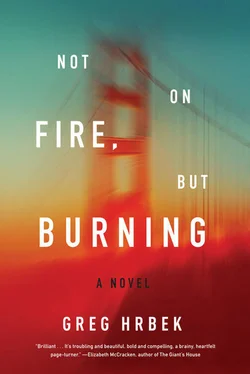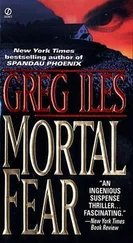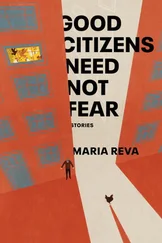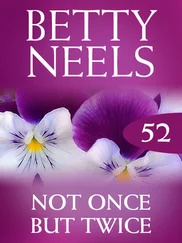For millennia, RS subcommittees have been issuing reports claiming that all pathways are predetermined and all actions performed therealong inevitable and unchangeable: that the notion of a choice between two (or more) possible actions is an illusion; that a choice-not-chosen, though available to the mind as idea , can never be converted by the brain into the electrical impulses necessary for the enactment of the choice.
We do not believe this to be true. We believe, to the contrary, that every pathway is created by choice , by the energy which moves (like electrons between a negative and a positive pole) between two actions, either of which may or may not be selected; and that the grid is an open system (like a brain either organic or artificial), which responds to every single choice being made across its infinitude of axes, and through which the energy of choices is carried along those axes, from one set of coordinates to another, as information in a brain is carried from one neuron to another along a synapse.
Example: Karim Hassad, who, in B 39— R 61, is currently in the backseat of a moving car in the Province of New York, clothed in a vest containing enough explosive liquid to blow his body into uncountable pieces and propel ten pounds of small metallic objects in a cycloramic arc at a speed of five-hundred feet per second. At which very same moment, on another path (X 4— H 18), he is in a different car, wearing not a suicide vest but a school uniform: white Oxford shirt, navy blue sweater, gray trousers, loafers, a patch on the breast of the sweater: ÉCOLE INTERNATIONALE DE GENÈVE … He is being driven through the American night, in a city robbed of power, along streets devoid of light. He is being driven through the European morning, through a city aglow with sun, along a lake of sheer blue . It is nearly time to die. It is nearly time for school .
“ Habibi .”
“Mm.”
“ Look at the fountain .”
She is pointing at the white column of the Jet d’Eau, shedding in the breeze a curtain of mist rainbowed by the morning sun. She asks him to say something about it in French. He says: “C’est tres bon.” She gives him, via the rearview mirror, a look of disapproval. He has studied the language since the age of three, almost fluent now with a straight A in the subject last quarter, but he hates to speak it because the pronunciation makes his voice sound silly. (He likes English best, then Arabic.)
While in the rear of the other car, he is thinking of his mother. Holding the eyeglasses somehow not lost for more than a year now.
“You still have them,” Yassim whispers.
“Mm.”
(Nodding; a strange set to his jaw): “She’s waiting. They’re all waiting for us …”
And Karim thinking: No, they’re not. They’re not there, because that place is nowhere; they aren’t anywhere even as he sits in the backseat of the other car looking at her eyes in the mirror as they cross the bridge over the Rhône and drive through Washington Park where the homeless of the capital live in makeshift shelters not unlike the one we built together, Yassim, and survived in for all those months and maybe better for you and me if things had just stayed as they were and no one had tried to right the wrong, because what does it mean to be set free only to find that one has no choice— though next week vacation at last and they gave him two options about how to spend it; he could go back to that place in the Alps or there’s a camp in the States, in the Northeast, in the Adirondacks and he remembers that it isn’t true: there is a choice, a choice of when . You can sit idly with these eyeglasses in your hands until the car arrives at its destination, then get out, then walk in, and then — at the appointed time, in obedience to orders given — pull the cord. Or you can pull it now. And so in a week he’ll be on a plane to New York and his Uncle Da’ud and Aunt Mai will meet him and drive him to the camp by which time you will be dead, and a hundred people more because of you unless you pull the cord now: the energy of the choice-to-be-made moving at the speed of an angel (faster even than the nails and screws and ball bearings will be moving after the pulling of the cord) traveling over the synapses of the grid as along the rungs of a celestial ladder and reaching him in the backseat of the car as an anxiety he can’t source or define, as if there is something about his life that frightens him — but what?
A whisper: “Karim …”
“Mm.”
“What are you thinking?”
Turning now to Yassim and wanting to answer him but unable to tell the truth and unable to lie — and so saying nothing, though if he were to speak truly (and in words that would express his thoughts truly), he would say: I am thinking of pulling the cord. Which I almost already did, back in that place, and I would have — but for the baby; and now, despite having nearly done it an hour ago and there being now and here no baby to harm, I can’t seem to do it, Yassim. Because right now there is still time. Air to breathe; things to see; a friend to sit beside for a while longer. The less time left to me, the more precious to me the rapidly diminishing time that remains. So that with every passing moment (which is another moment subtracted from the remainder), it seems harder to do what I know I should—
“ Karim …”
“Mm.”
“We’re here, habibi.”
And yet, try to understand me, Yassim: To cling to this remainder of time — which is no more than a scrap of paper burning — at the expense of the futures we would destroy, the lives we would sadden, is to renounce something even more valuable than breath, sight, companionship … Picking up his backpack, opening the door, going to the front passenger window which his mother is opening while reaching across the seat and taking Yassim’s right hand in his left; a gesture not rejected, but augmented by a firmness of grip that feels to Karim like a response to everything he would have said, a holding of the hand meant to mean: Yes, I do understand: of course: now. His mother reaching out, touching his cheek on a new morning . His friend holding his hand at the end of days. And he almost tearful at the separation. Thinking: Maybe I’m scared about next week, flying across the ocean alone — well, it’s too late now because everything has been arranged . Though it is not too late. Despite all the arrangements of the men in the front. Pull the cord now and all their arrangements shall come apart on a deserted and darkened city block. It will seem, as you place her broken eyeglasses in your lap, that you can feel her hand on your cheek as it is touching his ; and as you reach for the cord on the vest he will be shaking off the weird squall of emotions because it isn’t too late because he hasn’t left yet. She says: “See you soon, Karim.” And despite your wavering faith, you can’t help but believe her: envisioning her — as you close your eyes and pull the cord — in a place where a fountain streams skyward pure white water, and all is shrouded in a mist faintly falling, a rainbow in the mist made of sun and water, the colors of which are the true colors of light.
Later that night, in the Province of New York — on the pathway which, until this time, has been our focus — a boy named Dorian Wakefield will succumb to the early symptoms of a weaponized strain of hemorrhagic fever which will take his life by the following day (as it has already taken his mother’s) … But on another path, at a parallel point on the grid, a boy named Dorian Wakefield will be in his home above the Russian River Valley in California, at the dinner table: brother next to him; parents directly across; sister at the head. All five of them holding their phones — they all have the photo up, the one Kathryn e-mailed them yesterday from the beach — and laughing together.
Читать дальше












